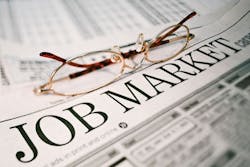Phil Tripp’s repair shop is in the town Forbes magazine last year named the worst small city in America for jobs: Jackson, Mich.
Located in south central Michigan, Jackson has long relied on the auto industry for jobs. Employment in the town of 36,000 has dropped nearly 10 percent from 2003 to 2008; Tripp estimates that it hovers around 20 percent.
“We’ve been dumped on,” says Tripp, who owns Tripp’s Auto Shop and Collision Center Inc. “The unemployment here is just staggering. Everything is down.”
Everything, that is, except sales at Tripp’s. In January of 2010, Tripp’s had sales of $470,000, the same as January 2009. In an economy where flat is the new growth, that’s nothing to sneeze at.
So how has Tripp done it? By working leaner and smarter, and keeping connected to the community. Tripp spent 2009 implementing lean techniques, which he says is what allows him to average 50 cars per week, with a record of 74 in one week. He has made three great hires because of six dealership closures in his area, and has maintained his marketing budget.
The Employment Factor
A recent study by The NPD Group found that customers in places where there’s higher-than-average unemployment are more likely to make the bare minimum of repairs necessary to make their cars drivable. In regions with below-average unemployment rates, where people are more likely to have discretionary income, customers might still make the more cosmetic repairs that are typical during good economic times.
“In areas of high unemployment, it comes down to buying what is needed to get by,” says David Portalatin, industry analyst for NPD’s automotive aftermarket market research group.
One bright spot for the collision repair industry: even in areas with high unemployment, people need a drivable car.
“A properly functioning vehicle is key,” says Portalatin. “They see that as a necessary expenditure.”
Tripp’s experience confirms that. While the average ticket has decreased from $1,500 to $900, Tripp’s has managed to maintain its year-over-year monthly sales volume despite being in one of the worst job markets in the country.
“The total ticket is dropping, but we’re just doing lots more cars,” Tripp says, crediting a robust marketing budget for keeping his shop busy.
One thing Portalatin recommends for shops in areas with high unemployment is to emphasize repairs that will make a car last longer or perform more efficiently. These days, someone with a 10-year-old car might want to make that car run another 10 years, rather than buying a new car. That means customers might have to make an investment now, which, Portalatin says, they’re not always averse to.
“The majority of automotive consumers aren’t as price-sensitive as they might be for other categories of purchases,” Portalatin says. “So if they have to spend a little extra to do it right, and that helps their car last longer, and saves money in the long run, that’s a compelling value proposition to the customer.”
Gaining Efficiency
Like most industries in this country, collision repair has experienced its own employment issues during this downturn. Denise Caspersen, manager of the collision division for the Automotive Service Association, says the closure of 4,000 dealerships last year, coupled with some layoffs on the independent side, has affected the industry—but not only for the worse. The industry is getting more efficient, thanks to lean production strategies, technological innovation, and training.
“We’re seeing a repurposing of people,” says Caspersen. “It’s not necessarily that you need less people, but you need less people on a certain task.”
Tripp credits lean techniques for helping his shop through the recession. “I’m not saying we haven’t been hurt, but we joke around here that we’re choosing to not participate in this economy.”



